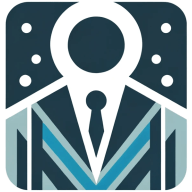Fostering a Culture of Continuous Learning in the Office
Exploring the dynamics of workplace education, this article delves into the core strategies for fostering a culture of continuous learning. It draws on the knowledge of industry veterans to break down effective methods such as structured meetings, skill-sharing sessions, and cross-functional projects.
- Structure Meetings for Maximum Productivity
- Organize Regular Skill-Sharing Sessions
- Implement Cross-Departmental Mentorship Programs
- Offer Self-Paced Online Learning Resources
- Promote Cross-Functional Project Collaboration
- Incentivize Professional Certification Acquisition
Structure Meetings for Maximum Productivity
As a business owner, my key tip for effectively managing meetings and appointments for executives is to ensure every meeting has a clear purpose, agenda, and outcome.
I prioritize structured scheduling--only setting meetings when necessary and keeping them focused. Using tools like calendar automation and time-blocking helps prevent overload while ensuring availability for high-priority discussions.
I also emphasize preparation by sharing agendas in advance and setting clear expectations for participants. Keeping meetings concise, action-oriented, and following up with key takeaways ensures they are productive and drive real results.

Organize Regular Skill-Sharing Sessions
Implementing regular skill-sharing sessions among employees can greatly enhance the learning culture in an office. These sessions provide a platform for team members to share their expertise and learn from one another. By dedicating time for employees to teach and learn new skills, the organization can tap into its internal knowledge base.
This approach not only improves individual capabilities but also strengthens team bonds and collaboration. Moreover, it creates an environment where continuous learning is valued and encouraged. Take the initiative to organize or participate in these skill-sharing sessions to contribute to a more knowledgeable and skilled workforce.
Implement Cross-Departmental Mentorship Programs
Establishing mentorship programs across departments is an effective way to foster continuous learning in the workplace. By pairing experienced professionals with those seeking to grow, organizations can facilitate knowledge transfer and career development. These programs allow mentees to gain insights from seasoned experts while mentors can refine their leadership skills.
Cross-departmental mentoring also promotes a broader understanding of the organization's functions and encourages interdisciplinary thinking. This approach creates a supportive network that extends beyond immediate teams, enhancing overall organizational cohesion. Seek out mentorship opportunities or volunteer to become a mentor to actively contribute to this learning culture.
Offer Self-Paced Online Learning Resources
Providing resources for self-paced online courses empowers employees to take control of their own learning journey. By offering access to a wide range of educational content, organizations demonstrate their commitment to employee growth and development. Self-paced learning allows individuals to acquire new skills or knowledge at their own convenience, fitting education around their work schedules.
This flexibility can lead to increased engagement and motivation as employees feel supported in their personal and professional growth. Additionally, online courses often cover cutting-edge topics, helping the organization stay current with industry trends. Explore the available online learning resources and commit to completing a course that aligns with your career goals.
Promote Cross-Functional Project Collaboration
Encouraging cross-functional projects broadens knowledge and fosters a culture of continuous learning by exposing employees to diverse aspects of the business. When team members from different departments collaborate, they gain new perspectives and insights into various operational areas. This approach not only enhances individual skill sets but also improves overall organizational efficiency through better interdepartmental understanding.
Cross-functional projects can spark innovation by bringing together diverse expertise to solve complex problems. Moreover, they create opportunities for employees to step out of their comfort zones and develop new competencies. Volunteer for or initiate a cross-functional project to expand your knowledge and contribute to organizational growth.
Incentivize Professional Certification Acquisition
Rewarding employees for acquiring new certifications is a powerful way to motivate continuous learning in the office. By recognizing and incentivizing professional development, organizations send a clear message that they value growth and expertise. This approach not only enhances individual skill sets but also elevates the overall competency level of the workforce.
Certifications often require dedicated study and effort, demonstrating an employee's commitment to their field and the organization. Furthermore, certified employees can bring fresh insights and best practices into their roles, potentially improving processes and outcomes. Identify relevant certifications in your field and discuss with your manager how pursuing them can benefit both you and the organization.

